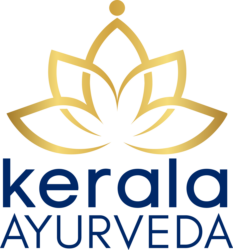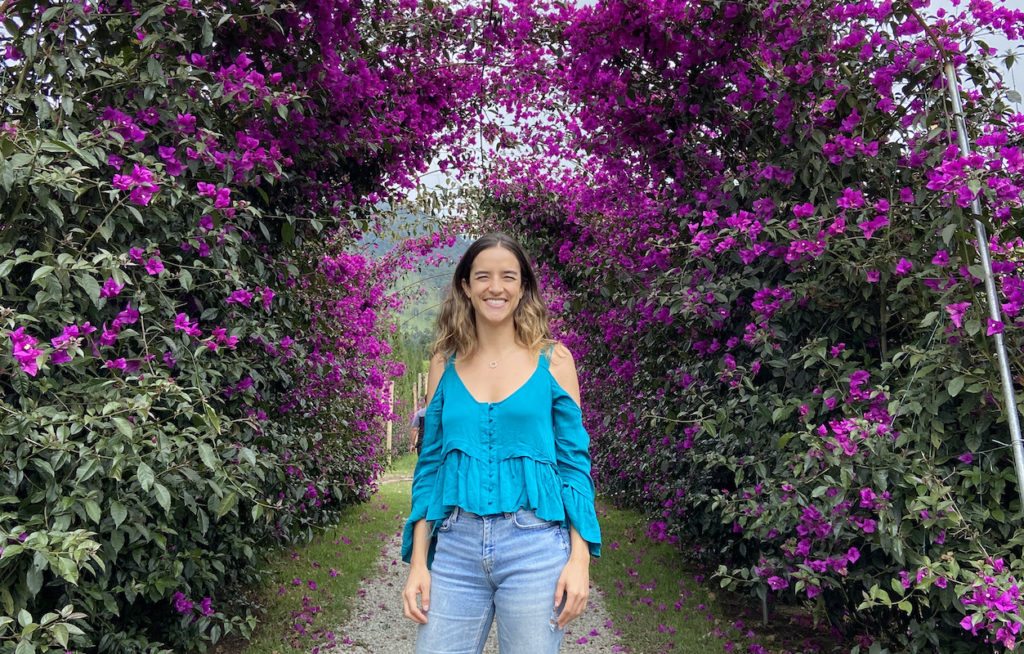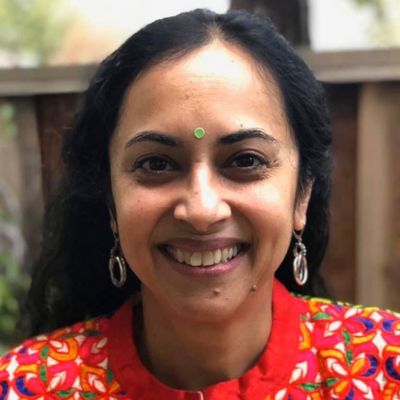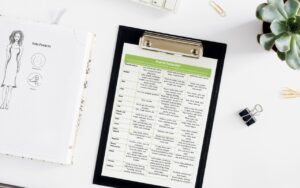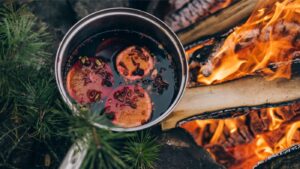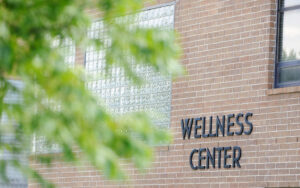Hispanic Heritage Month is honored mid September through mid October to promote the contributions, culture and history of Hispanic-Americans. We celebrate our Hispanic students and wish to shed some light on their experience. We interviewed Amalia Arango, Ayurvedic Counselor graduate, who practices in Bogotá, Colombia and will be studying the Ayurvedic Practitioner Program next. Amalia’s goal is to introduce Ayurveda in the Hispanic community, bringing health and wellness to all.
In the U.S., Hispanic-Americans are the largest ethnic minority group, but have disproportionately low health insurance coverage. Their healthcare is shaped by language and cultural barriers, as well as lack of access to preventive care. According to the CDC, the leading causes of illness and death within the community include heart disease, cancer, accidents, stroke, diabetes, asthma, obesity, suicide and liver disease. Latin Americans have relied for centuries on plant-based medicine, mysticism, spiritual rituals and home remedies, like onions for sore throats and honey for cold sores! Ayurveda, as a form of preventive medicine, can help given the use of CAM (Complementary and Alternative therapies) is 50-90 % higher within the population.

Tell us about your career path
How did you discover Ayurveda?
The first time I heard the word Ayurveda was five years ago when I read it in a book. A friend of mine had been diagnosed with MS and I got really interested about the different ways in which she could cure herself. I found out about a woman in Colombia who had also been diagnosed with MS. She wrote about her disease journey, and how through Ayurveda, she found a lot of helpful tools to manage the disease. As soon as I finished reading the book, I gave it to my friend. From that day onwards, I began to research more about it and fell in love with this science.
I couldn’t believe that all the information I found was almost everything from the KAA website, the place in which I would be studying five years later. This was such an incredible coincidence! As I started to read more and more about Ayurveda, I thought this was exactly how healthcare should be for me. Natural, holistic and people oriented. I knew there was something special with Ayurveda for me. But wasn’t sure if the decision was to turn my professional career all over, or just keep it as a side interest.
My main career is Business Administration. I did a specialization in Marketing Management and worked for eight years in Marketing and Retail. I am also very passionate about the environment, so recently I completed a Masters in Sustainability thinking that this would be my career switch (but it wasn’t). When I decided to move ahead with Ayurveda, I was a little sad because I thought I was not going to be able to put my sustainability studies into practice. But while studying, I was delighted to hear Dr. J [Vaidya. Jayarajan Kodikannath] talking about sustainability, the organic farms in Kerala and the importance of taking care of the environment to take care of ourselves as well. Knowing that, made a lot of sense to me and made me realize the reason by which I got interested in sustainability as well.
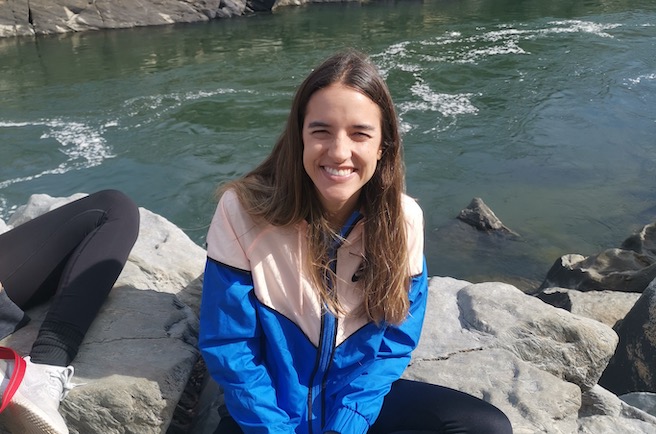
When you first studied Ayurveda, what resonated with you?
I have always been very passionate about nutrition and food, so the first thing that resonated with me from Ayurveda was the phrase ‘let your food be your medicine.’ I believe that is the key. Also, I am very curious about the mind and its potential, so mental health is another topic that resonates with me very hard. And I can not leave aside kids. I love them and love their intuition that little by little is lost as we grow up. So in the future, I would definitely love to work with them and encourage them to maintain that natural instinct that we all have for the food and lifestyle that balances ourselves.
What was your earlier experience with health and wellness?
As I mentioned earlier, I am very passionate about food, and mindful about what I eat because I know the way you eat influences a lot the way you feel. Interestingly, five years ago I experienced very intense stomach aches. I didn’t pay too much attention to this, thinking that I was the kind of person who had a sensitive stomach and had to live with it. Several months passed, but magically one day, I realized the pain was not normal and I didn’t want to live like that. I scheduled an appointment with an acupuncturist and TCM doctor who told me I had an inflammation in my colon, stomach and my liver was highly intoxicated. This was kind of a surprise for me, because I thought I was very healthy. since I was eating a lot of salads and I exercised almost every day.
Looking back I can see that despite being mindful about what I ate, it was very restrictive. I was eating inappropriate foods for my body, exercising way too much and not sleeping enough. My focus was mainly on the way I looked rather than on the way I felt. The kind of ‘healthy’ I thought I was, was not contributing to my overall wellbeing, also because I was not taking into account a crucial part: my mental health. Thankfully I addressed this stomach issue on time, because I don’t know what would have happened if I kept thinking that the stomach ache was normal. (There is no one single pain or ache which we can consider as normal.) And that was when I realized the huge importance and magic of prevention.
Discovering Ayurveda and understanding that to achieve balance, I should walk through the middle path was mind blowing for me. I thought that discipline was the key, but later I understood that discipline needs to take into account how the body feels and what the body needs, and that enjoying the good things in life was much more important than the other things I was doing. I learned that extremes are never good and pursuing the middle path was the most important lesson given to me for life.

Practicing Ayurveda in Colombia
Traditional medicine and Ayurvedic practice
Colombia has its traditional healing with plant-based folk medicine, home remedies and rituals. People used food as medicine, but through the generations, traditional medicine was lost and western medicine is now the most popular. Indigenous people still practice but mostly within their community. They are in remote places and the practice is not common or easy for people to seek them out. In daily use, leaves or spices are used for cooking but not healing. Once in a while someone may drink herbal preparations for digestion, allergies, cough or flu, but it’s mild and infrequent.
Ayurveda is recognized as an alternative form of medicine like TCM. It is not restricted or illegal (in Colombia) and is easy to practice.
How do you culturally translate the practice of Ayurveda?
All my consultations and seminars are in Spanish. I try to use simple language so people are not intimidated. I also talk about common and local foods so that people can easily relate.
There are a lot of ‘modern issues’ related to sleep, digestion, and so much misinformation related to food. People are not very certain about what to do, they have many theories. Also, especially in Latin America and Colombia, women are very focused on how they look and body image is a big issue with rogis [clients]. The culture and media increase this pressure; it’s incredible. I didn’t know I would deal with this issue until I started consulting. No matter what the natural body constitution looks like, how light or heavy the person is, most of us (I am also working on it) are concerned about body image and are always seeking for a model-like body, which is, of course, very frustrating and exhausting. It makes me wonder how we are wired. I’m very concerned about this, so I’m trying to give a message of health from the inside out; feel better first and then you will have the outcome without effort.
This is a very unequal country. Some people are conscious about health and have access to good quality food, economic facilities, regular exercise and healthy options. On the other side, there is malnutrition, poverty, diseases and that concerns me a lot. I want to provide simple, easy to apply education about healthcare and spread it to all kinds of people regardless of their economic capacity.
We can educate people to de-stress, sleep on time and have a better lifestyle. I try to communicate Ayurvedic principles in my talks so people change their perspectives. People think that well-being is complicated and expensive, so my message is: we don’t need expensive foods and imported goods and supplements or complicated calculations to eat; we can eat local, fresh food, cultivated close to our house and very intuitively.
The agricultural industry is an important part of the economy. Since we have great weather, we can access a huge variety of fruits, vegetables and spices. Depending on the city, exotic or traditional fruits grow, like watermelon, papaya, bananas, guanabana, guava, lulo, tangerine and apples. I love to buy my fruits, veggies and spices from small local farmers who deliver them to my house.
Eventually, I want to have a partnership with NGOs (non-government organizations) and the government to communicate basic Ayurvedic principles, so despite the inequity, people can apply it and improve their health and quality of life.
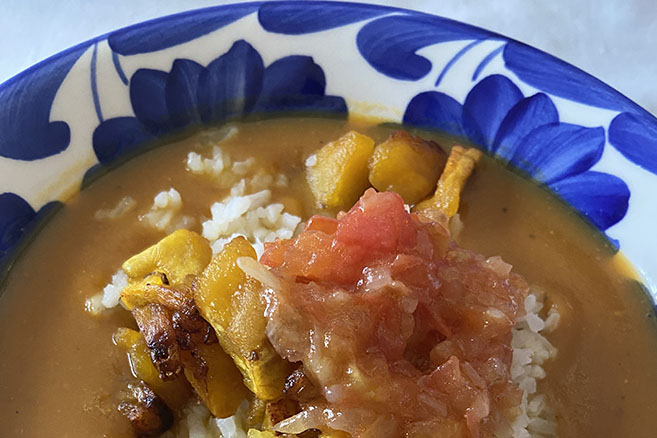

Amalia’s Ayurvedic practice
Tell us about your practice
I started my practice in April 2022. People are very receptive and surprised by the new things they learn about Ayurveda and themselves as well. They find Ayurveda easy to understand and it makes a lot of sense with natural, holistic concepts. I have been practicing in Spanish, online and in person, both from my home. My rogis [clients] are from Colombia and they’re all Spanish speakers, so I translate all the information I learn in English.
In my consultations, I noticed that people understand Ayurveda, but the difficulty is in changing and implementing the habits. So I schedule one or several follow up consultations to support them and meet them where they are.
Since we are a coffee producing country, most of us are used to drinking coffee even since childhood. Of course when I see there is an issue where coffee might be aggravating, I suggest to reduce it. (Some people can drink up to eight cups per day!). For some people, it’s very difficult to change the habit. Others say they were just drinking coffee because they didn’t know it was harmful for them, so they can easily make the correction.
How do you plan to grow and market your practice?
I have started my business little by little and am doing it from my house. Eventually, I plan to make this economically sustainable and reach more people with the complementary practice of Ayurvedic Practitioner disease management. I experienced my own first Abhyanga [external therapy with oil] recently and realized how important bodywork is as well, so I would love to study and practice Panchakarma, and the Ayurvedic Doctor program eventually.
Ninety percent of my clients are family, friends or very close people. I share some of my daily recommendations through social media and word of mouth helps a lot. People reach out through Instagram or Whatsapp because they know I’m practicing or people recommend me.
When I ask them whether they know anything about Ayurveda, 80% don’t and I have to educate them. When I told my parents, I had to explain the basics and do a consultation with my father because he had never heard about it before. It really helped to explain what I was doing now.
I’m doing in person seminars for free in social clubs. I have done two. One in Bogotá and another one recently in Medellín. I am also giving online wellness talks to companies. I love it because this educates people about Ayurveda, helps networking, and contributes to my main goal which is to share Ayurveda and wellbeing with millions of people.
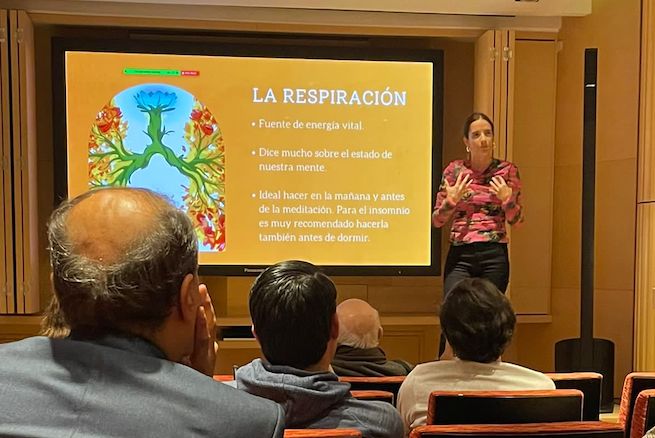

What are the barriers to growth for you?
What are your future plans?
The health and wellness industry has grown in the last few years and became popular in Colombia. I would like to have my own center with consultations and a massage space for PK [Panchakarma] treatments and bodywork therapies. These will complement each other very well and would be like a wellness center. You can see (laughs) that I like a lot of things and am enthusiastic about Ayurvedic nutrition, mental health, working with kids, studying the PK Technician class, pursuing the Ayurvedic Doctor program, and will have to decide later in the path how things go. I have really enjoyed the fact that I could start to practice Ayurveda while studying. It is very enriching since it helps understanding and applying different concepts in the meanwhile.




Growing Ayurveda in the Hispanic community
How do you recommend we encourage study and practice of Ayurveda within the Hispanic community?
- Currently, I don’t think there are enough Hispanic people in Ayurveda. I know only about 3-4 people who are practicing in Colombia and Ayurveda is not well known. There is an academy, but I preferred Kerala Ayurveda’s content, curriculum and methodology.
- Address the language barrier. The KAA website is completely in English. It would be good to have more content in Spanish online and translate concepts. Translations even of basic qualifications like Counselor or Practitioner are not precise.
- Address geography while translating seasonal practices. In the northern part of South America there are no seasons, so there aren’t any seasonal practices in terms of transitions. Here, we can indicate a certain type of Desha (geography) and what regimen to follow, (for instance dry places are Vata aggravating).
- Travel to California is a barrier for Hispanic people outside the U.S. It would be good to have internship options in an allied center in Colombia.
- We could have a network of Hispanic Ayurvedic professionals to share experiences and provide mentoring.
How can we encourage the Hispanic population to seek Ayurvedic care?
People are more likely to seek Hispanic professionals. We need to understand barriers of equity, language and that people have misunderstandings about healthcare. Educating people about Ayurveda will help. We don’t need to normalize indigestion, stress and anger. Ayurveda helps us know ourselves. We need to educate people about prevention and the importance of following nature.
KAA is grateful for students like Amalia who study with us from remote areas of the globe and are torchbearers of Ayurveda. We hope Ayurveda plays a role in healing and eliminating healthcare disparities which impact quality of life, longevity, economic opportunities and healthcare access for the Hispanic community.




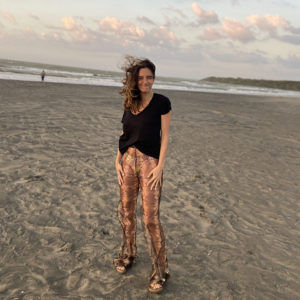

CONNECT WITH AMALIA
Follow Amalia on Instagram @amaliaarangoc.
